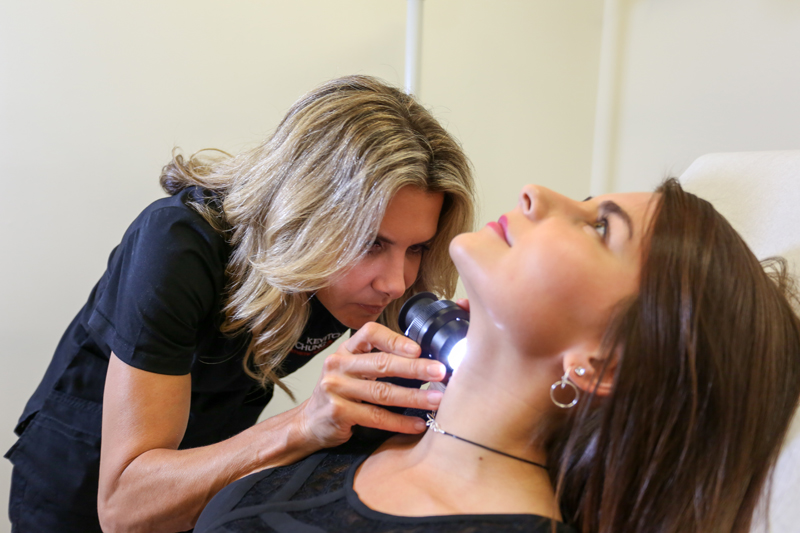Psoriasis
Schedule a ConsultationPsoriasis is a condition that causes the body to make new skin cells in days rather than weeks. As these cells pile up on the surface of the skin, you may see thick, scaly, silvery white patches. Plaque psoriasis is the most common type of psoriasis.

Plaques can appear anywhere on the skin, but you’re most likely to find them on the knees, elbows, lower back, and scalp.
Plaques tend to vary in size. They may appear on the skin as a single patch or join together to cover a large area of skin. Plaques tend to be itchy and without treatment, the itch can become intense. Some people notice that their skin stings, burns, or feels painful and tight.
Psoriasis is often a life-long disease and it helps to learn about it and see a Dermatologist to prevent the psoriasis from worsening. Dermatologist can help you learn and avoid what triggers your psoriasis and stick to a good skin care routine. There are many different types of medications that are used to control the disease. Different medications are tailored to the different types of psoriasis and extent of involvement.
Psoriasis can increase your risk of developing certain diseases, such as psoriatic arthritis or diabetes. Your Dermatologist can watch for early signs of disease. If you develop another disease, early treatment helps to prevent the disease from worsening.
